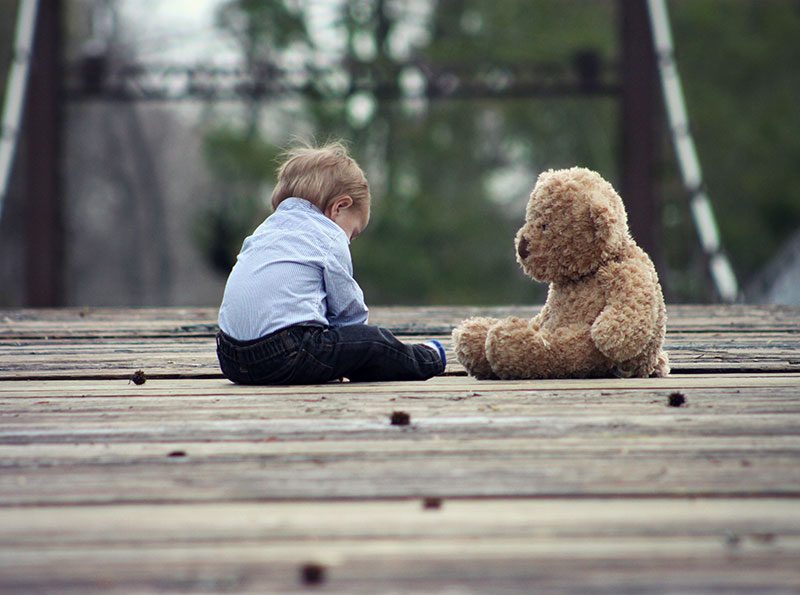Families built through adoption, foster care and kinship care have unique needs and challenges throughout each developmental phase of their family’s life cycle. Unfortunately, the complexities of adopting a child with a history of neglect, trauma and/or multiple attachment disruptions can quickly overwhelm even the healthiest of family systems. Without specialized, adoption/permanency competent mental health supportive services too many children and youth will disrupt from their newly formed families.
For youth in foster care ages 12-17, the disruption rate is 25%. Each subsequent move furthers the child’s belief that they are unlovable and deepens the well of pain they carry into their next ‘placement’ or family. It is not enough to simply find families for the child welfare systems waiting children, it is imperative that clinicians have specialized training to become adoption/permanency competent. For the courageous parents who are willing to open their hearts and homes to our community’s most impacted children and youth, they both need and deserve the specialized mental health services that will assist them in successfully parenting a child with complex and/or relational trauma.
What is Adoption/Permanence Clinical Competence?
On Sept 29, 2014 AB 1790 (DICKINSON) Adoption: Adoption Permanence Competent Clinicians bill was signed by Governor Brown. This is the first legislation in the country to address the need for adoption and permanence competent mental health providers. The goal of AB 1790 is to improve the stability of adoptive and guardianship families by increasing the pool of adoption/permanence competent mental health professionals. W & I Code 16125 requires that medical necessary specialty mental health services be provided former foster children whose adoptions have become final. Adopted children and their families have a profound need for therapeutic support by mental health professionals during the crisis stage of placement when the child and family are most vulnerable to disruption (and prior to the development of a secure parent-child attachment relationship). The serious shortage of adoption competent service providers that fully understand and appreciate these complex issues frequently leads to families feeling isolated, frustrated and hopeless, often leading to disrupted adoptions or foster care placements, and children being placed in group homes or residential treatment centers.
Barriers to Adoption
Today, the majority of adoptions finalized across the country are adoptions from the foster care system. This significant increase over the past two decades, of public sector adoptions has meant that the majority of adoptions are no longer private infant adoptions. The average age of our systems waiting children is 6.2 years. This means that we are now asking prospective adoptive families to adopt children with significant histories of neglect, trauma, violence, in-utero exposure to drugs/alcohol and/or multiple disruptions in primary attachment relationships. Research shows that there are more than enough families interested in adopting children from foster care but one of the main barriers is the lack of post adoption/permanence support. Too often, adoptive parents seeking mental health services for their children and family find that clinical providers do not understand the unique complexities associated with their life experiences and/or often intervene in ways that are unhelpful and that sometimes even compound their problems (Brodzinsky, 2013; Smith, 2014). More evidence-based practices are needed which address the nature of complex trauma as well as attachment and identity issues and other co-existing developmental challenges confronting these children (Smith, 2014).
Adoption/Permanence Clinical Competence
A family systems, attachment-based and trauma-informed orientation that allows clinicians to engage the entire family system in the treatment process is critical. The underlying belief in this model is that the family system is the healing mechanism for the child. Healing occurs within and through the context of a healing relationship. For children who have suffered through years of chronic abuse, neglect, attachment disruptions, violence and trauma . . . trusting and depending on new caregivers does not come easily. Adoption and permanency creates issues related to attachment, abandonment, grief/loss, identity formation, intimacy and mastery/control that are both complex and lifelong for children, foster/adoptive parents/caregivers, and birth families. Unfortunately, when these newly formed families do not get the specialized adoption/permanency competent mental health services they need . . . placements disrupt, and the cycle of foster care drift continues for the child.
Allison Davis Maxon, LMFT
allisonmaxon@cox.net
Allison Davis Maxon, M.S., LMFT is a nationally recognized expert in the fields of child welfare and children’s mental health specializing in Attachment, Developmental Trauma and Permanency/Adoption. She is the Executive Director of the National Center on Adoption and Permanency and was the foster care consultant for the Paramount Pictures movie Instant Family. Allison is co-author and master trainer of Kinship Center’s ACT: An Adoption and Permanency Curriculum for Child Welfare and Mental Health Professionals, co-author and master trainer of Pathways to Permanence: Parenting the Child of Loss and Trauma, and creator of ’10 Things Your Child Needs Every Day’, a video training tool to strengthen Attachment. Allison was honored in 2017 with the Congressional Coalition on Adoption Institute ‘Angels in Adoption’ award and is the co-author of Seven Core Issues in Adoption and Permanency: A Guide to Promoting Understanding and Healing in Adoption, Foster Care, Kinship Families and Third Party Reproduction, Jessica Kingsley Publishers 2019.
You can reach Allison at amaxon@ncap-us.org or www.allisondavismaxon.com

